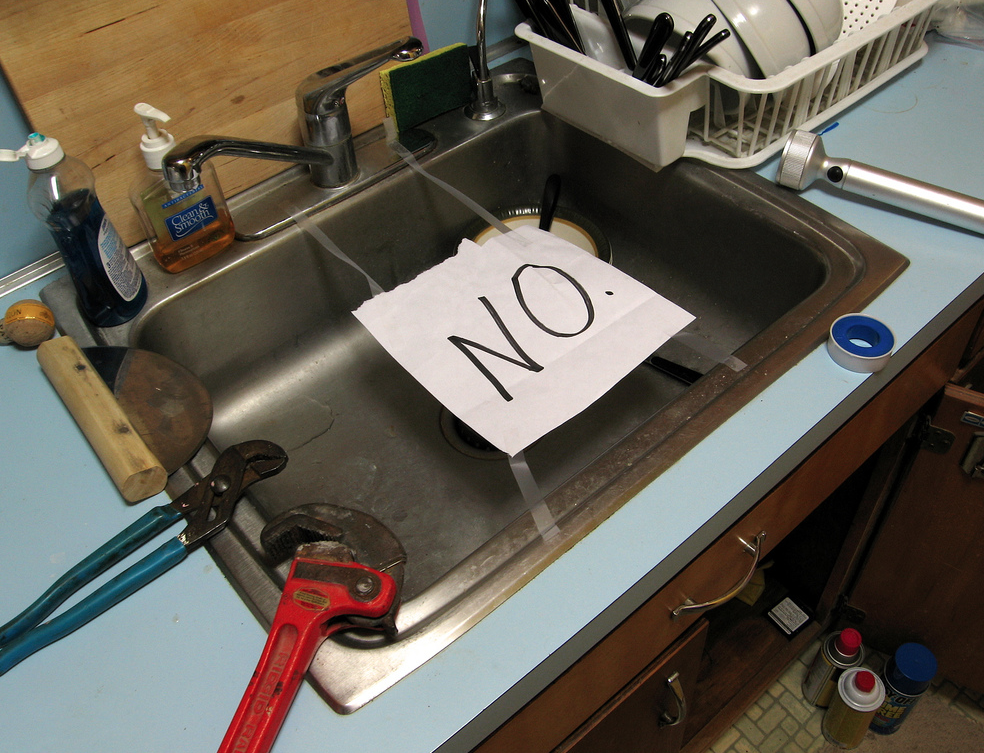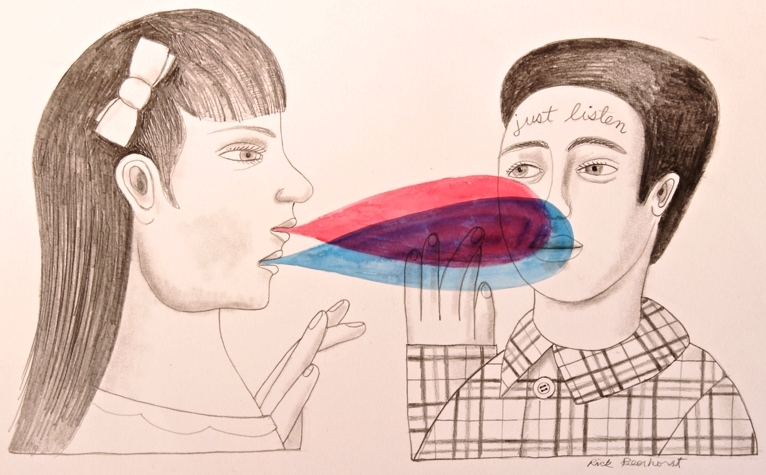
I try very hard to be patient and I try very hard to be positive. Succeeding — well, even attempting to succeed — requires constant vigilance. The world is naturally aggravating! Therefore it’s hard to stay levelheaded, compassionate, and cheerful. (Oops, I’m being negative again. Sorry, world, maybe I shouldn’t have criticized you…) Luckily, I am motivated to be easygoing and smiley. The reasons to keep striving are twofold:
- When I resist irritation and the impulse to complain, my life is calmer and more pleasant.
- The people I interact with are more likely to perceive me as calm and pleasant.
Both of these things are good. I want to feel better, and I don’t want to annoy my colleagues, friends, or family. Of course, my therapist would disapprove if I flat-out ignored my feelings, but I can acknowledge emotional reactions without letting them be in charge.

Stomping on anger and frustration, pretending that they don’t exist, is not an effective coping technique. And yet neither is griping. In 2014 Fast Company talked to Jeffrey Lohr, who coauthored a study called “The Pseudopsychology of Venting in the Treatment of Anger”. Lohr and his fellow researchers found out that venting reinforces anger rather than relieving it.*
As Doctor Guy Winch writes on Psychology Today:
“[We] associate the act of complaining with venting far more than we do with problem solving. As a result, we complain simply to get things off our chest, not to resolve problems or to create change, rendering the vast majority of our complaints completely ineffective. Even when we do address our complaints to the people who can do something about them, we tend to be unsuccessful far more often than not.”
We’re not very good at talking to each other. According to Fast Company, “Instead of anger management skills, Lohr says people need to learn conflict resolution and communication skills.”

I’m no expert when it comes to communicating with the people who cause my frustration. But I’m pretty okay at communicating with my own brain. When I notice that I’m upset, this is what I tell myself:
“Everyone is doing the best they can despite their ignorance, weaknesses, and flaws. Respect that they’re trying. You have weaknesses and flaws too, Sonya, and you don’t know everything in the world, but you’re not a bad person. Neither is [whoever]. Respond with the kindness that all human beings deserve.”
My mantra isn’t always effective, depending on how annoyed I am and how preventable the problem seems, but at least it buoys the self I want to be. My knee-jerk reaction is, “Ugh, I hate these morons,” but my secondary reaction is, “This, too, shall pass away.” It helps when I remind myself that nursing anger doesn’t accomplish anything. I want to be forgiving. I want to be loving. Like I said in the beginning: patient and positive.

*Jeffrey Lohr’s paper “The Pseudopsychology of Venting in the Treatment of Anger” was published in Scientific Review of Mental Health Practice in 2007. David McRaney also wrote a good article about this called “Catharsis”.